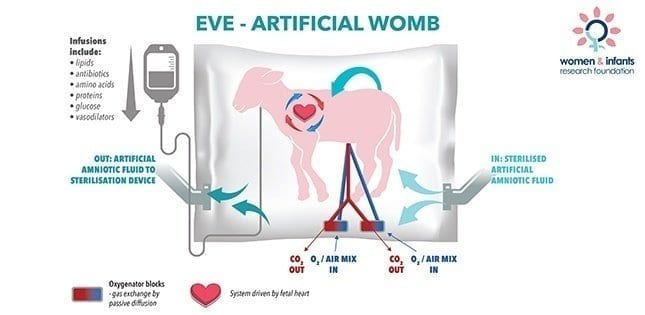
Research by UAlberta ecologists suggests studying DNA signatures is a “one-stop-shop” for wildlife conservation.
Tracking animals using DNA signatures are ideally suited to answer the pressing questions required to conserve the world’s wildlife, providing benefits over invasive methods such as ear tags and collars, according to a new study by University of Alberta biologists.
Genetic tagging, or the identification and tracking of individual animals using DNA, is a non-invasive method of conducting research that uses samples from shed hair, feathers, feces, or saliva.
“This method provides a toolkit that can answer many of the pressing questions in ecology and conservation and provides a ‘one-stop-shop’ for getting these answers,” explained Clayton Lamb, PhD candidate and Vanier scholar in the Department of Biological Sciences and lead author on the study. “Other methods would generally need to be combined to acquire similar insight. Genetic tagging approaches are complementary to traditional approaches and add a powerful tool to the ecologists’ toolkit.”
In addition to being non-invasive—in fact, there’s no need to handle individual animals at all—there are many benefits to using genetic tagging over other methods. Genetic tagging can cover more ground and is scalable, allowing scientists to examine overall population density or the composition of a single community. It also provides the ability to recognize individual animals with great precision, allowing scientists to research animals that are otherwise difficult to study.
Access to DNA sequencing technology has grown increasingly affordable since the 2000s, thereby increasing access and usability for ecologists and biologists around the globe. And it’s a good thing too, as our world continues to change.
“As human pressures on the globe increase, scientists are tasked with identifying drivers of decline and mobilizing this evidence to promote mitigation,” said Lamb. “Genetic tagging offers a powerful approach to parameterize such relationships across massive spatial extents, for difficult to sample species, and in a cost-effective and socially-acceptable manner.”
Learn more: Genetic tagging may unlock nature’s secrets and help conserve the world’s wildlife
The Latest on: Genetic tagging
[google_news title=”” keyword=”genetic tagging” num_posts=”10″ blurb_length=”0″ show_thumb=”left”]
via Google News
The Latest on: Genetic tagging
- The Library of Cannabison May 17, 2024 at 5:00 pm
“Things like this require a big price tag in order to break even,” Hendricks said ... What does it take for a strain to end up in HendRx’s genetic preservation library? The answer to that is both ...
- Bee migration from Himalayas puts Sundarbans honey on global liston May 17, 2024 at 8:38 am
Sundarbans honey is the only GI-tag product from Bengal to make it to the Geneva conference ... Participants aim at finalising decades-long negotiations among WIPO member states concerning genetic ...
- Best DNA Test for 2024on May 15, 2024 at 10:00 am
CNET’s expert staff reviews and rates dozens of new products and services each month, building on more than a quarter century of expertise. If you’ve ever been curious about your genetic ...
- How To Become A Genetic Counselor: Skills And Requirementson May 14, 2024 at 7:16 pm
Commissions do not affect our editors' opinions or evaluations. Genetic counselors are healthcare professionals who work with patients and families affected by inherited disorders and conditions.
- News tagged with genetic studieson May 14, 2024 at 5:00 pm
A recent study led by UC Davis Health researchers provides new insights into the molecular changes linked to the rare genetic condition 22q11.2 deletion syndrome, or 22q. It found unique ...
- Genetic News and Researchon May 13, 2024 at 5:00 pm
Researchers at the Icahn School of Medicine at Mount Sinai have made a significant discovery, identifying genetic connections between inflammatory bowel disease (IBD) and Parkinson's disease (PD).
- Is Acid Reflux Genetic?on May 6, 2024 at 4:59 pm
Both genetic variations (alleles) and different types of genes may increase the chance of developing GERD. For example, the FOX1 gene affects the growth of smooth muscle in your stomach.
- A 12-Year-Old Is First to Start New Sickle Cell Treatmenton May 6, 2024 at 1:25 pm
He's the first patient outside of a clinical trial to start a new genetic treatment that was shown in clinical trials to cure 88% of people of the hallmark symptoms of sickle cell disease.
- Producers to be paid grid premiums for AngusLinkSM Beef Scoreson May 6, 2024 at 11:44 am
For the first time, cattlemen can earn grid premiums based on the genetic merit of their cattle, stemming from their investment in superior genetics. National Beef Packing Co., LLC announces the ...
- All you need to know about skin tagson April 30, 2024 at 5:00 pm
Cauterization: The skin tag is burned off using electrolysis Cryosurgery ... syndrome is a rare genetic condition characterized by skin tumors, including multiple fibrofolliculomas, trichodiscomas ...
via Bing News











